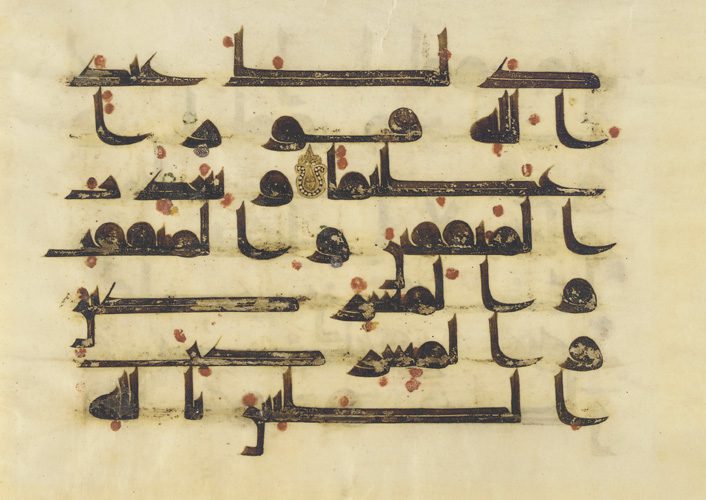
(Wikimedia Commons public domain image)
I continue chugging along with my manuscript on Islam for Latter-day Saints. Here, I’m discussing the Qur’an’s portrayal of the end of all things and the Last Judgment:
We are the witnesses of all your thoughts and all your prayers and all your actions. Not an atom’s weight in earth or heaven escapes your Lord, nor is there any object smaller or greater, but is recorded in a glorious book.[1]
The records of men’s deeds will be opened up.[2]
Upon that day men shall issue in scatterings to see their works, and whoso has done an atom’s weight of good shall see it, and whoso has done an atom’s weight of evil shall see it.[3]
“Woe on that day to the disbelievers!” the Qur’an declares. “When they are bidden to kneel down, they do not kneel.”[4] But at the last day, every knee shall bow and every tongue confess its sins. “All who dwell in the heavens and on earth shall prostrate themselves before God, some willingly and some by force.”[5] “You shall see all the nations on their knees.”[6]
The souls of men and women will be judged on the basis of their works.[7] God will not wrong anybody; if wrong is done by anybody, it will be done by oneself. “He that commits sin, commits it against his own soul.”[8] Repentance is possible, but the Qur’an does not approve of death-bed repentance that has been delayed until sin is savored to its last drop.[9] If their works have been evil and they have not repented, the souls of human beings will receive a terrible punishment. “On that day you shall see the guilty bound with chains, their garments blackened with pitch, and their heads covered with flames.”[10] The sinner on that day would gladly sacrifice his children, his wife, his brother, his kinsmen who have given him shelter, even all the people of the earth—if only this might deliver him. But it will not.[11]
Nevertheless, there is divine grace in Islam, which God will bestow upon those who have sought to know Him and to carry out His will. “God will do away with their foulest deeds and reward them according to their noblest actions.”[12] How will individual people be notified of the fate that will be theirs? According to the Qur’an, each soul will be handed his or her “book,” containing an accurate record of the deeds done in the flesh. If the book is placed in the soul’s right hand, it may know that it will enjoy eternal bliss in paradise. If, however, the book is placed in the left hand, it will be a sure sign that, in the just verdict of God, that particular soul’s deeds merit damnation.[13]
The Qur’an does not predict a specific time for the Day of Judgment. “They question you about the Hour of Doom,” it tells Muhammad. “When will it come? How are you to know? Your Lord alone knows when it will come. Your duty is but to warn those that fear it.”[14] The fact that mankind has been supplied no specific time and does not know the Lord’s timetable cannot justify the common assumption that the dreaded hour will not come. Nor, for that matter, should people complacently assume that it is far away: “They think the Day of Judgement is far off: but We see it near at hand.”[15]
Your hearts are taken up with worldly gain from the cradle to the grave. But you shall know. You shall before long come to know. Indeed, if you knew the truth with certainty, you would see the fire of Hell: you would see it with your very eyes. Then, on that day, you shall be questioned about comfort.[16]
[1] 10:61; compare 17:13-14; 45:28-29;
[2] 52-53.
[3] 99:6-8 (Arberry); compare 21:47.
[4] 77:47-48.
[5] 13:15.
[6] 45:28.
[7] 14:51.
[8] 4:111; compare 10:44; 11:101; 16:33; 29:40; 43:76. Also, compare the Book of Mormon’s Ether 10:11, where we find the striking description of Morianton as a king who “did do justice unto the people, but not unto himself.”
[9] 4:17-18; 8:38.
[10] 14:49-50.
[11] 10:54; 70:11-18.
[12] 39:35.
[13] 69:18-29.
[14] 79:42-45 (Arberry); compare 7:187; 67:25-26.
[15] 70:6-7.
[16] This is the entire text of the 102nd chapter of the Qur’an and a good example of the conciseness of the chapters revealed at Mecca.












